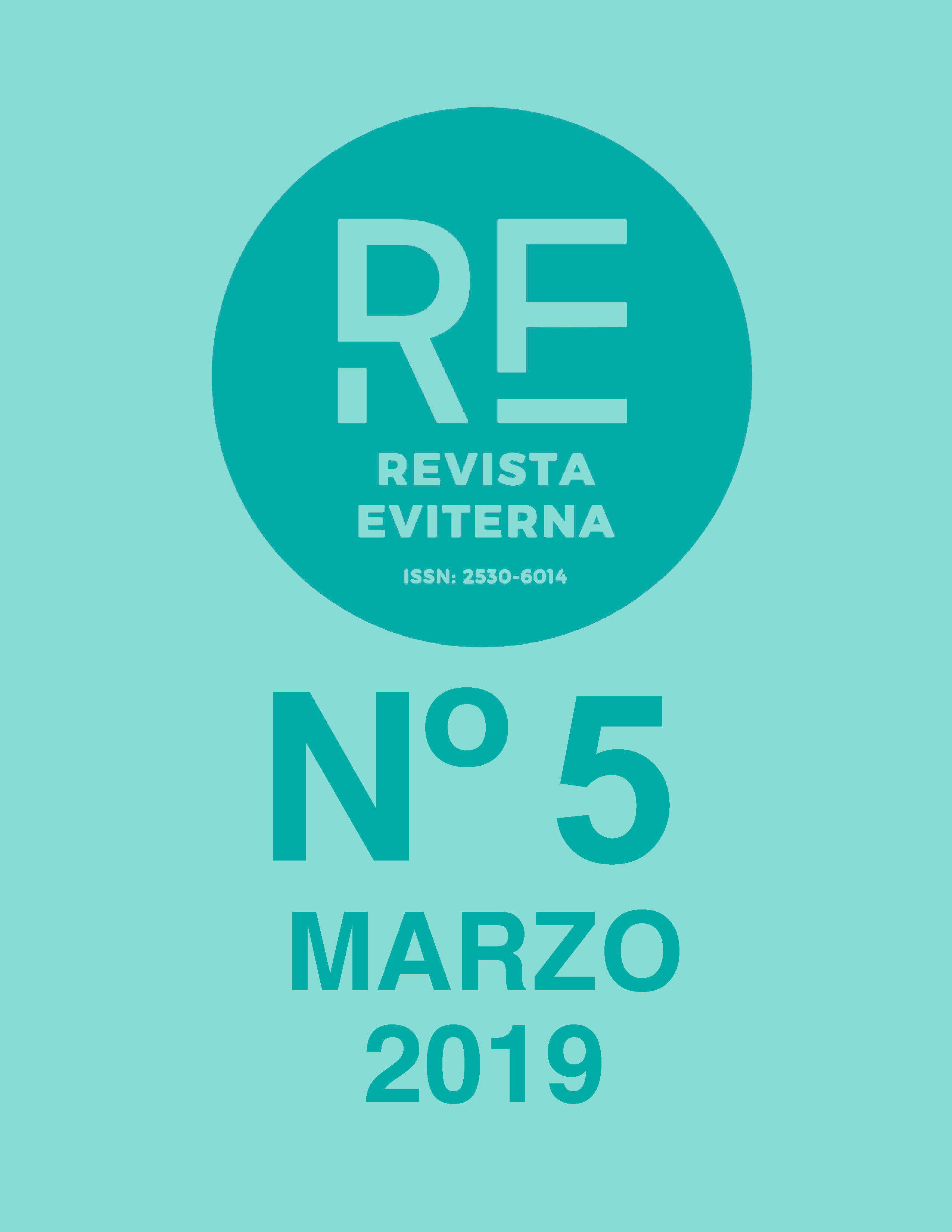"Inconfessions of Gilles de Rais" or the collective imaginary as poetic material: pedophilia, sexual climax and homicide
DOI:
https://doi.org/10.24310/Eviternare.v0i5.8058Keywords:
Spanish poetry; female poetry; Ana RossettiAbstract
It is well known that many poets tend to use popular beliefs when it comes to create their pieces of works about historical charaters. No wonder then Spanish poet Ana Rossetti has taken Gilles de Rais’ collective imaginary to write her poem in which she depictes the sexual activity and the homicides that have tipically been attached to the French noble throughout history. This paper aims to analyse how Rossetti manages to introduce De Rais’ figure into her poem, focusing on his vicious appetite for young boys, and how she, in closing, comes back to the literary topic of sex and death.
Downloads
Metrics
Publication Facts
Reviewer profiles N/A
Author statements
Indexed in
-
—
- Academic society
- N/A
- Publisher
- Universidad de Málaga
References
ADSUAR, María Dolores (2009). Los enemigos del alma en los relatos de Virgilio Piñera. Universidad de Murcia: Murcia.
?
HERRERÍAS, Lucía (1996). Espero Estar en la Verdad: La Búsqueda Ontológica de Paul Ricoeur. Gregorian University Press: Roma.
IGLESIAS, Yolanda (2009). Una Nueva Mirada a la Parodia de la Novela Sentimental en La Celestina, Iberoamericana Editorial: Madrid.
LOWEN, Alexander (2000). Amor y Orgasmo: Una Guía Revolucionaria para la Satisfacción Sexual. Editorial Kairós: Barcelona.
MOLEÓN, José B. (1995). Del franquismo a la posmodernidad. AKAL: Madrid.
NADALES, María Rosa (2009). Escritoras y figuras femeninas (literatura en castellano) ArCiBel Editores: Sevilla.
PENNEY, James (2006). The World of Perversion: Psychoanalysis and the Impossible Absolute of Desire. SUNY Press: Albany.
POTTS, Malcolm y Roger Short (2001). Historia de la Sexualidad: Desde Adán y Eva. AKAL: Madrid.
PRADENAS, Luis (2006). Teatro En Chile: Huellas Y Trayectorias, Siglos XVI-XX. Lom Ediciones: Santiago de Chile.
REYO, Zulma (1994). Muerte y Renacimiento. Editorial Kier: Buenos Aires.
ROSSETTI, Ana (1980). Los devaneos de Erato. Prometeo: Valencia.
Downloads
Published
How to Cite
Issue
Section
License
All the contents published in Revista Eviterna are subject to the Creative Commons Reconocimento-NoComercia-Compartirigual 4.0 license, the full text of which can be found at <http://creativecommons.org/licenses/by-nc-sa/4.0>
They may be copied, used, disseminated, transmitted and publicly exposed, provided that:
The authorship and original source of your publication (Journal, editorial and URL of the work) are cited.
They are not used for commercial purposes.
The existence and specifications of this use license are mentioned.

Copyright is of two kinds: moral rights and patrimonial rights. Moral rights are perpetual, inalienable, inalienable, inalienable, inalienable and imprescriptible prerogatives.
In accordance with copyright legislation, Revista Eviterna recognizes and respects the moral rights of the authors, as well as the ownership of the economic right, which will be transferred to the University of Malaga for dissemination in open access.
The economic rights refer to the benefits obtained by the use or disclosure of the works. Revista Eviterna is published in open access and is exclusively authorized to carry out or authorize by any means the use, distribution, disclosure, reproduction, adaptation, translation or transformation of the work.
It is the responsibility of the authors to obtain the necessary permissions of the images that are subject to copyright.







12.png)



